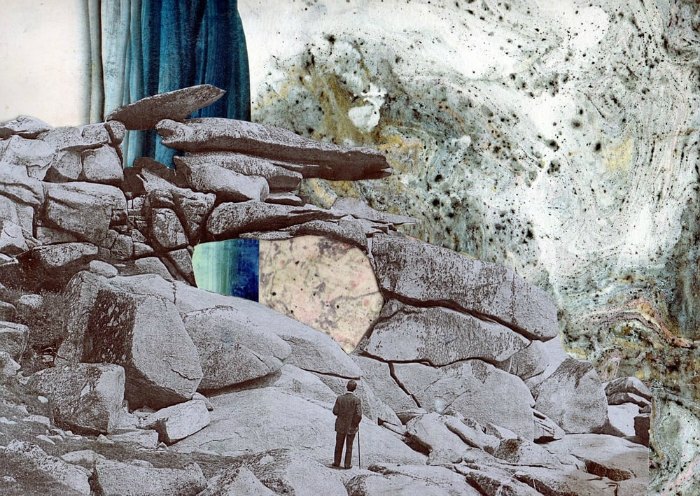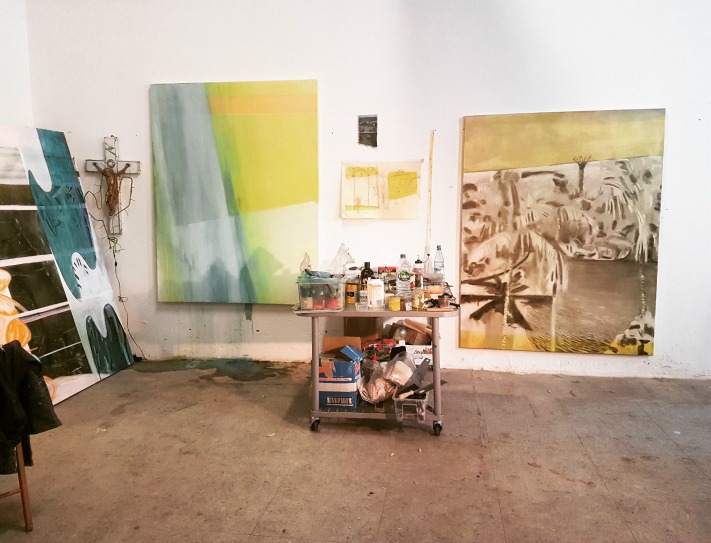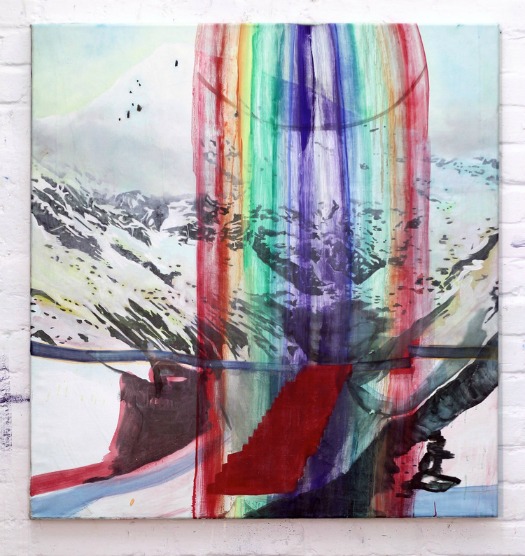Louise Thomas lives and works in Berlin and will be teaching our Imagined Landscapes course on October 11th-13th, 2017
Q. You were brought up in London and studied at Falmouth and now live in Berlin, do you feel that the landscapes of these places have influenced your work?
I have moved a lot; living in London and Paris briefly before settling in Berlin. I am interested in the layers of history within the landscape not so much what appears on the surface. Berlin and Penwith are both rich in history. and it’s the kind of permeable urban landscape you can really get involved with.
Q. What brought you to work in a way that juxtaposes landscape, architecture and memory to create such amazing dream-scapes?
Once I find a subject that draws me in I will go to great lengths to understand it and furthermore how I can explore aspects of that subject in painting. To get to this understanding I look at literature, archive material, museum records, specific walking routes, films I have made of abandoned architecture and personal accounts. I perform extensive research and careful study of the subject matter; building a pool of research to work from in my studio. For example in 2015 I became interested in the high frequency of ships wrecking around the peninsula of Cornwall, UK. After some reading I found I was interested in the circumstances of a small selection of shipwreck disasters on the Land’s End peninsula. In order to deepen my understanding I walked sections of the
coastline where the events took place alongside studying shipping registers and archive photographic material in Morrab library in Penzance. These activities provided me with unique historic artefacts relating to certain ships.
Q. Which artists have influenced your work?
I am a big fan of Mamma Anderson, Graham Sutherland and Ben Nicholson
Q. Can you tell us a bit about your painting process?
After a period of careful research I will start to construct models, paintings and collages using the
resources I have gathered. I usually end up with a series of stage sets to play out scenarios. The models can be in clay, paper, plaster and site-specific materials like natural pigments and minerals. The collages are assembled from archive photographic documents, oil paintings on paper I have made and then dissected scraps of paper. From this point on the work usually develops into something quite playful as I mix up the historical elements with mythical or magical elements. This has in the past involved the following processes in my studio; flooding models of existing spaces, rebuilding models, restoration of ship wrecks from personal accounts and shipping registers and imagining existing structures one thousand years from now using architectural plans.
Q. As a guest tutor on our Mentoring and Defining Practice courses you are not new to Newlyn School of Art however the new ‘Imagined Landscapes’ three-day course is your first short course for the School; what processes and materials can students expect to use on the course?
A broad range of materials and unique colours made by the students with pigments and binders as well as a wide range of commercial colours to fully flex out and experiment with building unique compositions. Immersion in landscape, materials and techniques. I will be sharing processes that help me realise final pieces.
Q. The course looks really very exciting can you tell us more about what our students can expect to learn?
I will be sharing my working process and helping students to look at ways of generating ways of working with steps towards paintings using collage and working on different types of paper that they will be able to build on and really kick start exciting studio work. Students will have access to see my current progress while I start a new body of work on a painting residency in Cornwall. We will look at learning balanced self-critique.
Q. Is the course open to all levels of previous experience?
Yes all levels welcome. We will find our starting points in the imagery students bring in landscapes and memories. I will guide you through simple but effective mark marking techniques to produce physical work and a broad range of preparatory works to reach a final piece. So yes; everyone can try this. We won’t be testing skills or forcing representational work. The course will allow students to harness their individual mark marking skills and compose works that are exciting, contemporary and vibrant.
Questions by Sasha Garfit
Find out more about the Imagined Landscapes course


